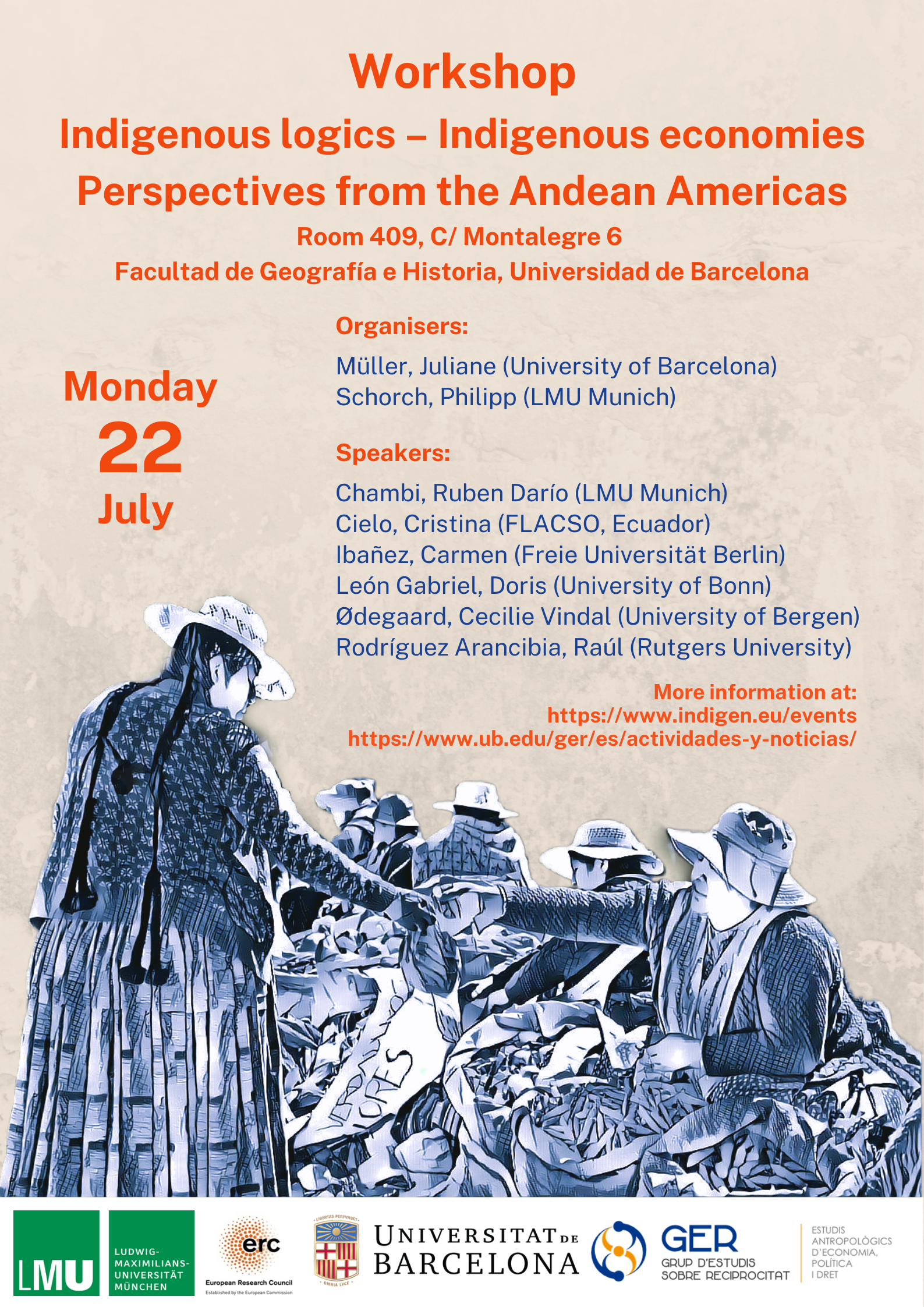22 Jul 2024 | Ruben Darío Chambi, Juliane Müller & Philipp Schorch
Indigenous logics – Indigenous economies: Perspectives from the Andean Americas

Register here to join online!
Capitalism - founded on principles such as private property, self-interest, competition and market mechanism - has been described as the “most gigantic, totalizing, and all-encompassing universal system of evaluation known to human history” (Graeber 2001). Consequently, it has been critiqued and indeed attacked throughout its history, among others, from Marxist to anarchist, feminist and post-colonial positions. Some of the alternatives presented are grounded in Indigenous ways of knowing and being. The case of Vivir Bien, pursued as official government philosophy by the Plurinational State of Bolivia, is a prominent example. This state version of Vivir Bien promotes values that are considered to be alternatives to, or opposites of, the capitalist model, such as a communitarian (distributive) economy, balance with nature, complementarity between men and women, and an anti-individualistic consciousness. Yet, capitalist structures, processes and practices are still around, including those enacted and perpetuated by Indigenous actors, such as Aymara traders in the very state of Bolivia.
The workshop tackles this conundrum. Rather than opposing capitalism to unviable and romanticising alternatives, we seek ways in which different logics operate and intersect, and different values get inflected and reconfigured. More specifically, the workshop sets out to dig deep into Indigenous logics through which Indigenous economies come into being. For example, the economic activities of Aymara traders are based on moral concepts, material transfers, social interactions and local institutions, which are grounded in and enacted through particular cosmological frameworks and domains of subalternity, and which correspond with, but at the same time differ from, conventional market mechanisms and hegemonic trends of capitalist accumulation.
We invite further historically, ethnographically and theoretically informed perspectives from across the Andean Americas aimed at gearing the apparently “all-encompassing universal system of evaluation” towards particular instantiations, which offer alternatives through economic structures, processes and practices themselves, for example in their multifaceted relations to people, other-than-human beings and environments.
For more information, please see the workshop program.

